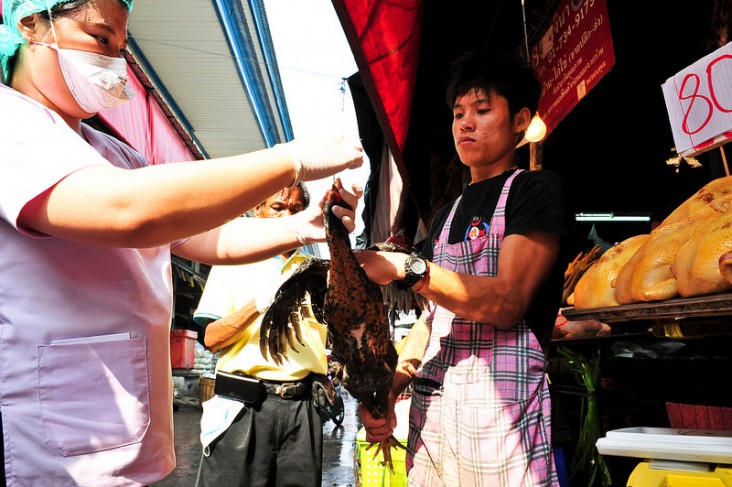
For Immediate Release
BANGKOK, November 17, 2015 — On November 16, U.S. President Barack Obama announced that the United States and 30 partner countries, including Thailand, have made a commitment to work together to achieve the targets of the Global Health Security Agenda. Together, we will partner with the Government of Thailand to strengthen the capacity to prevent, detect, and respond to future disease outbreaks.
The U.S. Mission in Bangkok welcomes this opportunity to build upon its enduring public health partnership with the Government of Thailand and other nations and donors to prevent avoidable epidemics, detect threats early, and respond rapidly and effectively.
Globally, infectious diseases account for a billion human cases each year, leading to millions of deaths. The majority of known human infectious diseases—including pathogens responsible for AIDS, SARS, Ebola, avian influenza, and MERS—are “zoonotic,” meaning they originated in animals, but have crossed the species barrier to infect people.
In 2014, the U.S. Government joined with partners from around the world to launch the Global Health Security Agenda (GHSA), a multilateral and multi-sectoral initiative of over 40 countries to enhance global capacities to address infectious disease threats and achieve measurable targets aligned to international standards.
To help advance GHSA objectives, the U.S. Government will work with the Government of Thailand across Ministries of Public Health, Agriculture and Cooperatives, and Natural Resources and Environment -- and other stakeholders to build and lend support to five-year country roadmaps. These roadmaps are intended to identify specific milestones, next steps, and opportunities toward achieving capacity to prevent, detect, and respond to emerging disease threats and help facilitate better understanding across sectors and among implementing partners.
“The science is clear. The economics are clear. And history is clear,” said Glyn T. Davies, U.S. Ambassador to Thailand. “The spread of infectious diseases poses a global threat and presents serious public health, economic, and development concerns. The United States welcomes this opportunity to enhance our partnership with the Government of Thailand in the health arena—a cornerstone of our 180 year relationship—to prevent, detect, and rapidly respond to infectious disease threats.”
The U.S. Government, through the U.S. Agency for International Development, the Department of Health and Human Services, the Centers for Disease Control and Prevention, the Department of Defense, and the Department of Agriculture, will expand its partnership with human and animal health authorities and key stakeholders, including the World Health Organization, Food and Agriculture Organization of the United Nations, and the World Organization for Animal Health. Amongst other areas of technical cooperation, the partnership will work to reduce antimicrobial resistance, improve laboratory capacity, and strengthen the existing and future multi-sectoral workforce. Under the Global Health Security Agenda, the Government of Thailand’s leadership role in these three action packages is advancing our collective capacity to address emerging disease threats and mitigate their impact wherever and whenever they arise.
In July, 2015, the U.S. Government announced its intent to invest more than $1 billion in resources to expand the GHSA to prevent, detect, and respond to future infectious disease outbreaks.







Comment
Make a general inquiry or suggest an improvement.